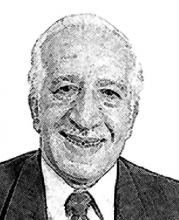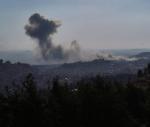The Israeli prime minister’s visit to Jordan a few days ago came at a perfect time to clear the air of mistrust, to affirm the special relationship between the two countries, and to calm many Jordanians who feared a repeat of a secret deal between the Palestinians and the Israelis like the one that started in January 1993 in Oslo and whose architect was the same person, Mahmoud Abbas.
Benjamin Netanyahu assured Jordanians that no deal will be signed behind Jordan’s back. He affirmed that Jordan’s higher interests will be respected, be it when it comes to the custodianship of the holy sites, border issue or regarding the question of refugees and their symbolic right of return.
Though leaks about a “clone“ of the 1993 Oslo Accords against Jordan originated in Ramallah, Amman considers itself a partner in any final solution, as it has been hosting, since 1948, over two million Palestinians. Some are still living in the 13 refugee camps, some managed to have Jordanian citizenship or national identity numbers and are considered Jordanians of Palestinian origin.
The Jordan Valley border issue worries the Israelis who fear that in a volatile region, they cannot leave the main defence of their people to random, recently formed, military guards.
The Jordan Valley region constitutes the Achilles’ heel in any future defence plan for Jerusalem.
Jordan shares an equal share of the Ghor, and must be consulted and coordinated with in all future arrangements in that regard.
Arab sovereignty over that terrain is indisputable, but the daily activities there — managing farms and the agricultural infrastructure — should be negotiated among all three parties, but with the same seriousness with which the issue of the five settlement blocs in the West Bank and Jerusalem, with its inhabitants of nearly 600,000 Israelis, is tackled.
Netanyahu was not in a position, when he came to Amman, to give any assurances regarding Jerusalem, since he cannot deviate from the religious Likud demands, and in a strong Knesset, he cannot afford to alienate that omnipotent religious voting bloc.
Even the Jordanian custodianship of the holy shrines was left intact, with the simple question, holy for whom, since the definition of holiness is comparative and varies among muftis, priests and rabbis.
The desecration of one holy site is not seen as a sin by another sect. That development explains why the Vatican’s Pope Francis will be coming to the region in May to define and try to protect the Catholic share in that equation.
The Pope’s fears were the same fears voiced by Iranian Foreign Minister Mohammad Javad Zarif when he came to Amman last week as part of his objection to the American plan which gave the Saudis a share in the future administration of the Holy Basin in the Arab part of Jerusalem.
Moreover, the Iranian delegation admitted and recognised the legitimacy of a Jordanian role in any future arrangements to achieve a peaceful solution to the Syrian mayhem, which has, in three years, devoured more than 150,000 Syrians and rendered homeless seven million refugees, within Syria, and in Turkey, Lebanon and Jordan.
The Israeli team accompanying the prime minister was resourceful to describe the visit as an attempt at “nipping in the bud” some attempts to create misunderstanding between Amman and Jerusalem, to be manipulated by certain parties and, at a later time, to the disadvantage of both Israel and Jordan, and to the detriment of US Secretary of State John Kerry’s framework for negotiations.
It is in Israel’s strategic interest to make peace with the Palestinians now, according to the Kerry’s plan, since the region, as a whole, is being radicalised at an unprecedented pace.













